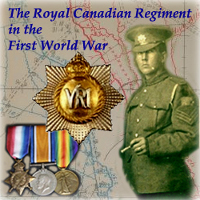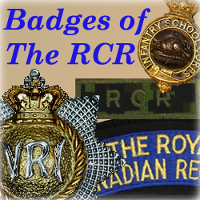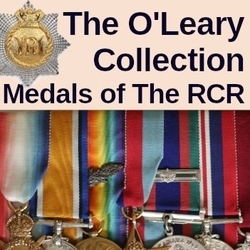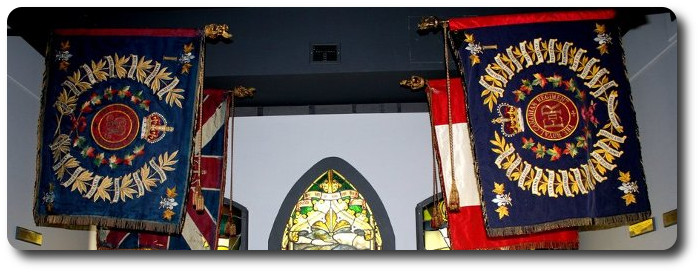
Researching The Royal Canadian Regiment
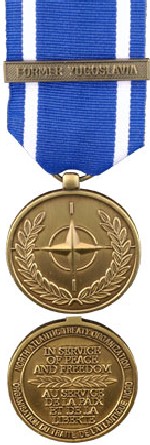
NATO Medal for Former Yugoslavia (NATO-FY) is awarded for thirty days continuous or accumulated service in direct support of NATO operations, on land, at sea or in the air spaces of the Former Yugoslavia, Albania, the Former Republic of Macedonia, and the Adriatic Sea (the theatre of operations) commencing 1 July 1992 and ending 31 December 2002
Germany Remembered
Captain K.M. Boughton
Pro Patria Issue No. 75, August 1993
Wollen Sie ein Bier?
Ja! Ein grosse Bier, bitte.
Odds are that the reply above were the first words of German spoken by most soldiers who had the good fortune to be posted to Germany. Those of us who were there (the majority I would think when you factor in our retired members), all have an abundance of fond memories of Deutschland - Gasthofs and the appreciation of German beer prominent among them. Many married German girls, children were born, raised and schooled and just everyday life in Germany are experiences which have left their influence on both soldier and family. The Regiment forged close links with the German community, especially in Soest, and some German culture rubbed off on us. Where do you think the practice of holding Oktoberfest parties in the messes began?
The soldiering there surpassed anything in Canada. The training facilities were better (remember Bonnland), and we participated in huge division and Corps exercises with our NATO allies - not in the confines of training areas - but in a German countryside dotted with villages and towns.
At the section level, one could easily supplement hard rations with "brotchen" and cheese purchased from the local "Bäckerie" or get one of the omnipresent German kids to scoot off and get it for you. What a refreshing change it was from the empty wilderness of Canadian training areas.
However, you only had to visit the East German border once, with its minefields, watch towers and barbed wire fences, to be reminded that we were in the front lines of what would be, if it ever happened, World War III. This horrifying prospect was never far from our minds and it gave more urgency to our training. The frequent alerts and bugouts (they called them Snowballs in Baden) always prevented one from getting complacent.
As soldiers, we were especially happy to see the rapid collapse of communism in Eastern Europe and the Soviet Union, and the reunification of Germany and the break-up of "The Evil Empire" .The Cold War was over and we had won! But who would have thought it would have happened so soon and so quickly.
The end of the Cold War started the clamour for "peace dividends" in the West and it was not surprising given the political and economic climes of Canada for our Government to order the complete withdrawal of the Canadian Forces in Germany. That withdrawal is now nearly finished and only a small remnant remains to complete the final closure. All will be gone by this time next year.
It is with mixed feelings we departed Germany. We loved soldiering there, we loved living there, but we are glad that the threat from the Warsaw Pact is gone. We did our duty and now of Germany we have only memories.
This cover story commemorates our time in Germany. It began for The Royal Canadian Regiment on 8 November 1953 with the arrival of 2 RCR at Fort York near Soest. It ended, almost 40 years later, on 30 June 1993, with the closure of 3 RCR 's Headquarters in Baden. Between the beginning and the end, The Regiment spent a total of 24 years in Germany; 12 in northern Germany at Fort York (Soest), and 12 in southern Germany at CFB Baden Soellingen (near Baden Baden). Time served by each of the battalions was:
2 RCR: 7 yrs (1953 -55) Ft York (1965- 70) Ft York
1 RCR: 5 yrs (1955- 57) Ft York (1962- 65) Ft York
3 RCR: 12 yrs (1977 -84) Baden (1988 -93) Baden
I hope you remember Germany as fondly as I do.
Pro Patria
Und Gemütlichfeit
